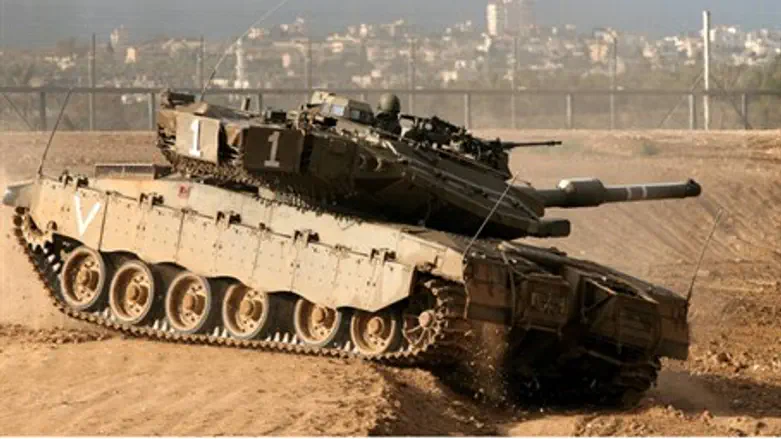
Israel on Saturday accused Syrian forces of trying to provoke conflict following a border clash.
Tensions around Golan Heights ceasefire zone between the two rivals have escalated since Syrian forces fired across the UN-patrolled ceasefire line and hit an Israeli military vehicle on Tuesday.
"This week's events are part of a disturbing pattern of events intended to spark provocation with Israel," said Israel's UN ambassador Ron Prosor in a letter to the UN Security Council.
"Responsibility for the event rests entirely with the government of Syria which instructed its troops to fire on the jeep. Despite numerous complaints, they have persisted in these acts of aggression," Prosor added in the letter, which was released by Israel's US mission.
"We expect the international community to hold the government of Syria accountable for undermining international agreements and regional stability," Prosor said.
Israel says the shooting and other recent incidents are a breach of the 1974 accord which set up the Golan ceasefire zone.
Other shells and fire from the Syrian side have landed inside Israel during the 24-month Syrian conflict and UN observers have been abducted at least three times by Syrian rebels in incidents inside the zone.
In a rival letter to the 15-nation Security Council, Syria said the Israeli vehicle was targeted because it had crossed the ceasefire line and was heading toward a village where rebels had made a base.
Syria's UN envoy Bashar Jaafari said President Bashar al-Assad's forces would respond immediately to any other violation of its sovereignty. Syria expects the Security Council "to put an end to Israel's violations," Jaafari said.
Jaafari said the Israeli vehicle had been headed for the village of Bir Ajam. "The presence of armed terrorist groups in that village led the Syrian armed forces to target the above-mentioned Israeli vehicle," he said.
Jaafari said Israel is interfering in Syrian affairs "through its provision of logistical support for armed terrorist groups in Syria, including those that are active in the area of separation of forces."
Israel's air force chief, Major Gen Amir Eshel, warned Wednesday that tensions with Syria could escalate into a "surprise war".